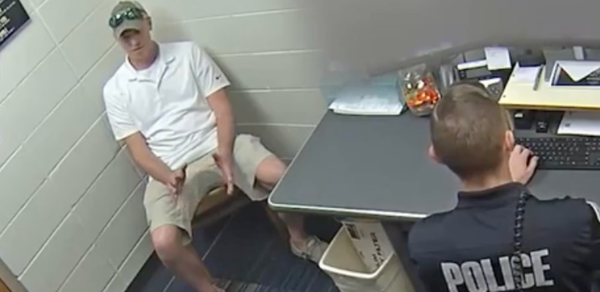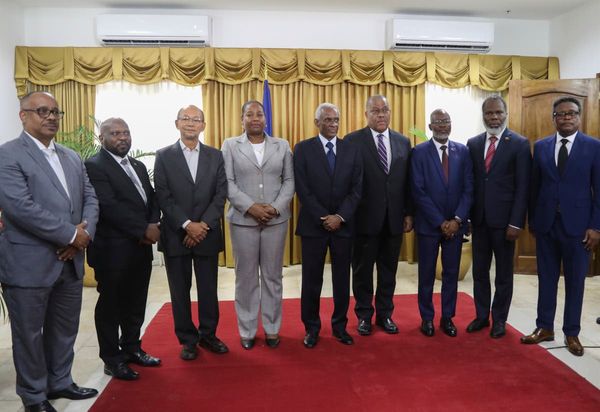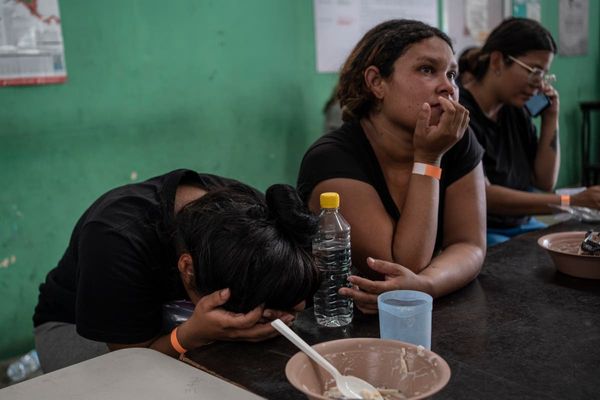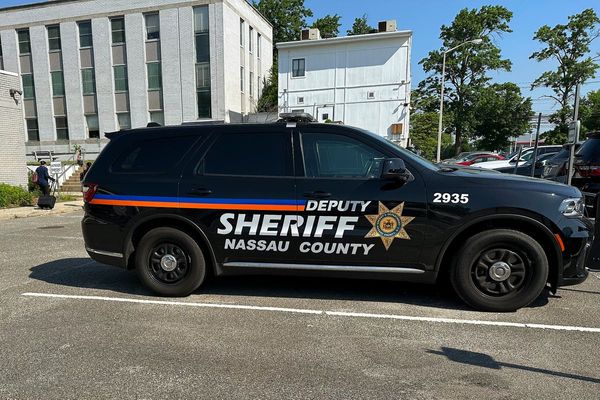
Canada will send in armed forces to tackle fast-spreading wildfires in British Columbia, prime minister Justin Trudeau has said, as more than 35,000 people were put under evacuation orders in the western province.
British Columbia imposed a state of emergency late on Friday, giving officials more power to deal with fire risks. The main fire was centered around Kelowna, a city 300km (180 miles) east of Vancouver with a population of about 150,000.
But other blazes, exacerbated by severe drought, were reported closer to the US border and in the US Pacific Northwest, where separate wildfires had killed at least one person and destroyed dozens of structures.
More than 380 fires were burning across British Columbia, with 150 burning out of control, according to the Canadian Press. Another 236 fires were burning in the Northwest Territories.
Canadian ministers and other government officials urged residents living in evacuation order zones to take immediate action in the interest of their own lives and those of firefighters.
The British Columbia premier, David Eby, also imposed a ban on nonessential travel on Saturday in order to free up accommodation for evacuees and firefighters. Authorities urged people to avoid traveling to fire zones and avoid operating drones to take pictures, which they said would hamper the work of firefighters.

Officials have not yet given any estimates of the total number of buildings destroyed.
Trudeau said in a social media post on Sunday that the federal government had agreed to send in military assistance after a request from the British Columbian government.
Forest fires are not uncommon in Canada but the spread of blazes and disruptions underscore the severity of its worst wildfire season yet. The fires have drained local resources and drawn in federal government assistance as well as support from 13 countries. At least four firefighters have died in the line of duty.
About 140,000 sq km (54,054 sq miles) of land – roughly the size of New York state – had already been scorched nationwide, with smoky haze extending as far as the US east coast. Government officials project that the fire season could stretch into autumn due to widespread drought-like conditions.
2,000km to the north, a wildfire burning out of control in Yellowknife, the capital city of Northwest Territories, triggered the evacuation of almost all of its 20,000 residents last week, leaving it a virtual ghost town.
The fire is not currently expected to reach the city limits by the end of the weekend, officials say, with some rain and cooler temperatures helping to slow its progress.

Flames were being held at bay 15km (9 miles) from the city, but firefighters were not close to declaring victory, especially with drier and windier weather forecast for the coming days.
“We’re by no means out of the woods yet,” Mike Westwick, wildfire information officer for Yellowknife, said. “We still have a serious situation. It’s not safe to return.”
Yellowknife’s mayor, Rebecca Alty, encouraged residents to stay away from the city to ensure their safety and help with firefighting efforts. She assured people that patrols were monitoring the streets and homes to protect against looting.
About 2,600 people remained in Yellowknife, including emergency teams, firefighters, utility workers and police officers, along with some residents who refused to leave.
In British Columbia, the TransCanada highway was closed near Chase, around 400km north-east of Vancouver, and between Hope – 150km east of Vancouver – and the village of Lytton. The highway is the main east-west artery used by thousands of motorists and truckers heading to Vancouver, the country’s busiest port.
Just across the border in Washington state, firefighters battled two major blazes, the Gray fire and the Oregon Road fire, which combined had blackened more than 20,000 acres (8,100 hectares) of forest land and destroyed more than 100 structures.
Washington wildfire officials confirmed that at least one person had died in the Gray fire.
Reuters and Associated Press contributed to this report







